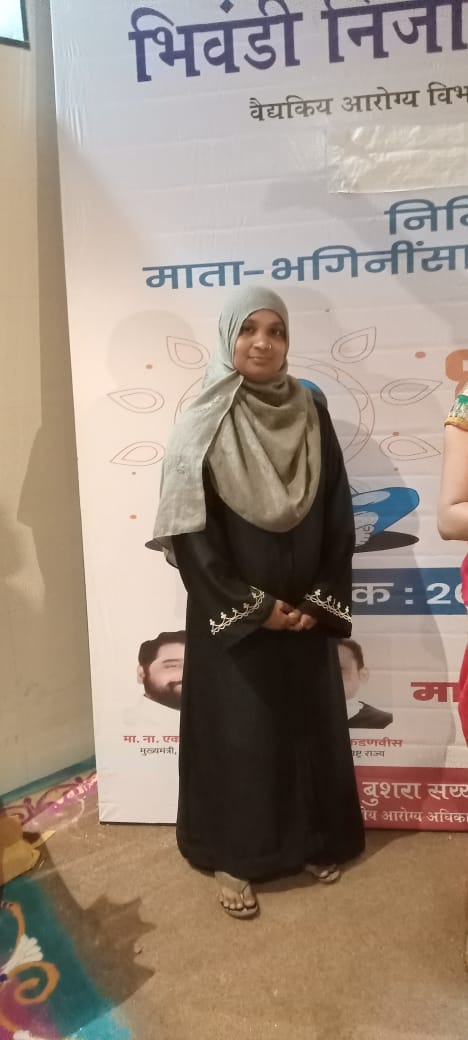Children often cry and fuss when they receive vaccines; the sight of the syringe and needle can be terrifying for them. But the woman in a white uniform diverts their attention, gives the jab, and the child hardly even notices. It’s a common scenario, and while children may not fully understand the importance of vaccines, these life-saving measures are crucial.
This is why governments undertake the task of universal immunization, a responsibility that rests on the shoulders of ground-level health workers. Describing the work of these grassroots health workers in a few words is challenging because their contribution is vast and essential.
Launched by the Government of India in 2014, Mission Indradhanush scheme seeks to achieve 90 per cent full immunisation coverage across the country, with a focus on the high risk and underserved communities. Vaccination against eight life-threatening diseases, including diphtheria, tuberculosis and hepatitis, among others, is provided through the dedicated efforts of the grassroots health workers.
At present the Mission is in its third phase – the first phase was rolled out in 2015 and the second in 2020 – with a special push for vaccination in the high-focus districts. Of the 216 districts identified for this targetted intervention across India, 12 are in Maharashtra: Ahmednagar, Aurangabad, Beed, Dhule, Hingoli, Jalgaon, Nanded, Nasik, Palgarh, Parbhani, Solapur and Thane.
The implementation of vaccination programs is carried out by Auxiliary Nurse-Midwives (ANMs) and Accredited Social Health Activists (ASHAs) of the Public Health Department. These grassroots health workers are at the forefront of public health efforts.
Under the National Health Mission (NHM), the focus is on improving the health of both urban and rural populations, especially the poor and vulnerable. A key component of NHM is the recruitment and training of female community health activists known as ASHAs. These ASHA workers are selected from the communities they serve, making them accountable to the people they work with. They act as a bridge between the community and the public health system.
ASHA workers are responsible for ensuring that every child and pregnant woman receives the necessary vaccinations. Sometimes, parents offer various excuses, such as a fussy child or a busy schedule. Nonetheless, health workers persist in their efforts, sometimes even providing transportation to ensure that vaccinations are administered. Religious and community beliefs for vaccination resistance, are other challenges health workers encounter.
During the COVID-19 pandemic, ASHA workers were on the frontlines, risking their health and lives every day. They not only raised awareness about COVID-19 and safety protocols but also tracked cases and conducted vaccination drives, often without adequate personal protective equipment.
Salma Sayed was one such hero, who, in November 2021, was in the Vanjarpatti area of Bhiwandi for a polio round – the first after the Corona outbreak. During the initial months of the pandemic, the routine immunization program was put on hold, and all health staff were involved in tending to patients. However, when the polio round was announced, Salma made home visits, calling on parents to bring their babies for immunization.
In one household, she faced anger and abuse from the father of a six-month-old baby. He even tore up her file. Maulana Asaduddin, who works with the World Health Organization in Bhiwandi, intervened and rescued her. Salma did not give up. She continued to visit that family, and over time, the father realized his mistake and started getting his child immunized.

ASHA workers like Salma also undertake the task of gathering essential family data, tracking children’s vaccination status, and addressing issues related to adolescent girls’ health, such as menstruation and nutrition. They have observed that anemia is prevalent among Muslim girls and women due to poverty and inadequate nutrition.
Encouragingly, women from various faiths are increasingly adopting birth control methods, with Copper T and condoms being popular choices. ASHA workers actively promote family planning while treading cautiously, given the sensitivity of the topic.
Despite the challenges, ASHA workers have established strong bonds with their communities. They tirelessly promote health initiatives, including vaccination and family planning, and have even built networks of social workers and local leaders to assist in their work. These unsung heroes receive a mere remuneration of Rs 6,500 for their relentless efforts.
In conclusion, grassroots health workers like Salma Sayed and ASHAs play a pivotal role in protecting the health and well-being of communities. Their dedication and determination ensure that children receive life-saving vaccines, families are educated about health and family planning, and communities are supported during challenging times. In fact, riding on the hard work of health workers on the ground, Bhiwandi Municipal Corporation has improved its immunization coverage to 87 percent, where five years ago it was 44 per cent.
